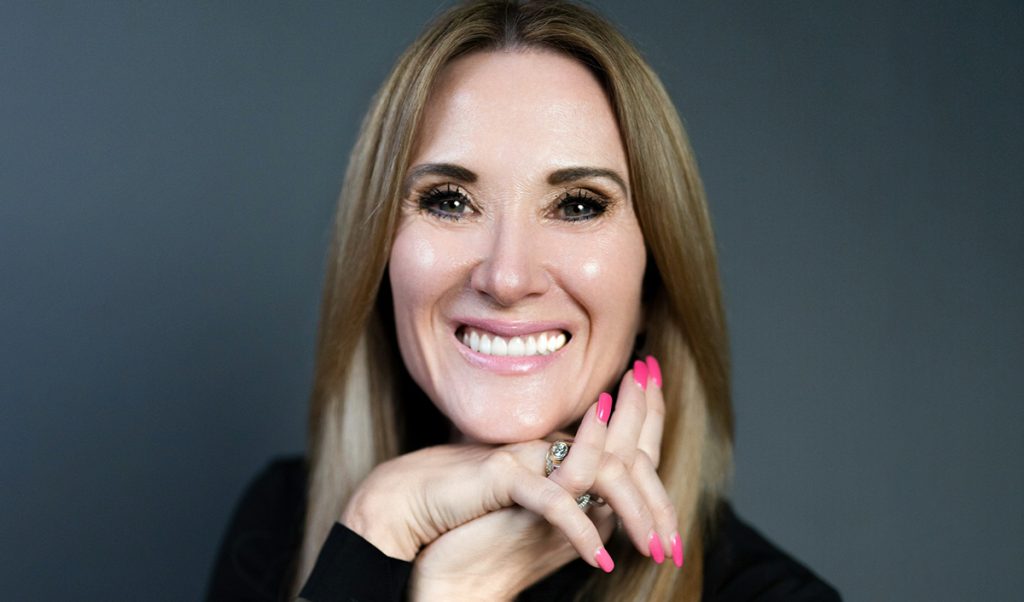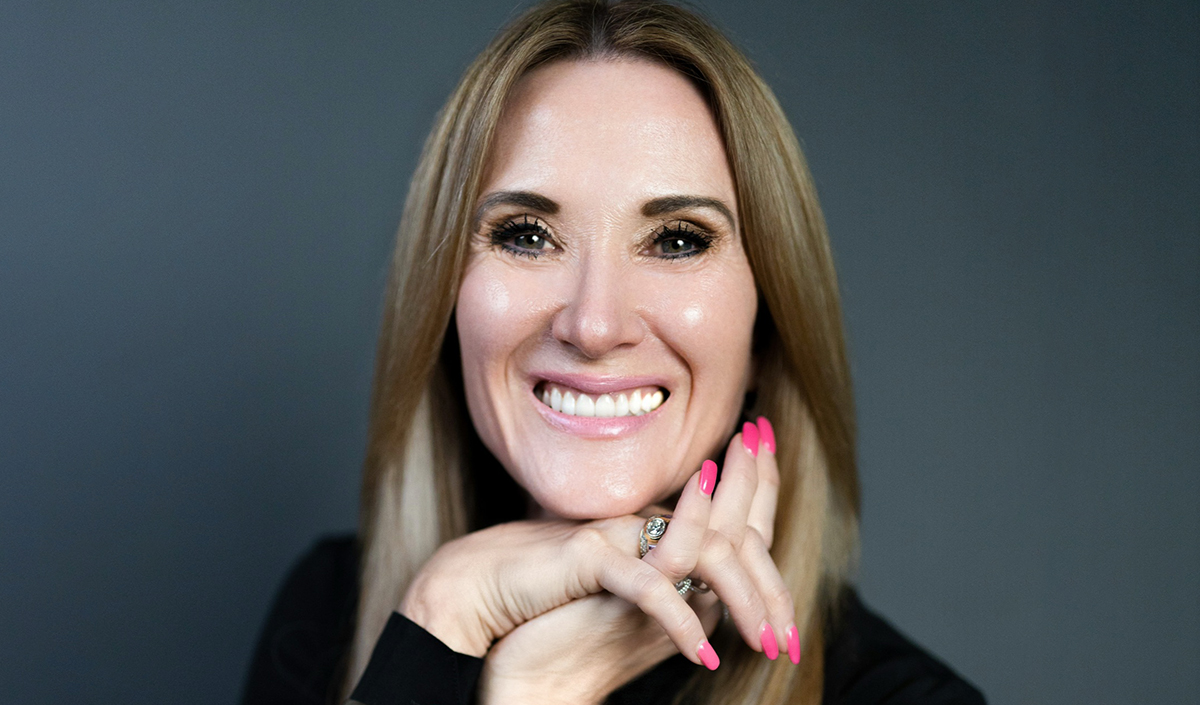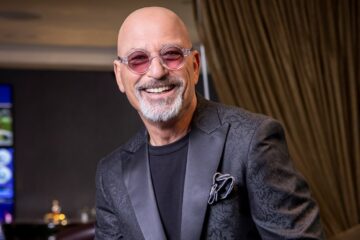“If we teach people to think, they’ll find love, they’ll find peace, they’ll find clarity”

In her newest book, Cleaning Up Your Mental Mess, Dr. Caroline Leaf helps us recognize that, by understanding the mind, we can understand how to manage it.
Socrates famously said, “I cannot teach anybody anything. I can only make them think.” That’s been Dr. Caroline Leaf’s driving mission going on for 38 years now — teaching people how to think — specifically, by using their minds in order to rewire their brain and body (neuroplasticity).
As a communication pathologist and cognitive neuroscientist, Dr. Leaf’s fascination with the mind-brain connection has led her to help millions of people improve the quality of their lives, find autonomy in their life’s narrative and reduce the global stigma around mental health.
Q: When did your fascination with the mind-brain connection first start?
CL: From a little girl, I was always going to be a doctor, and I always wanted to be a neurosurgeon. I wanted to operate on people’s brains, and, then, as I got into medicine, I started realizing this is not really what I wanted to do. I didn’t want to get stuck with surgery, where people are asleep on the table; I wanted to actually be connecting with people.
I was very privileged to get into a combination degree that was doing neuroscience, medicine, communication pathology, very unusual for 38 years ago. I got into that, and it really challenged me because it was a combination of different degrees. They made us work 24/7 because it was three different degrees — seven years pushed into four years. They kept us so busy, and that intensity gave me such a fascination for what the mind is capable of doing when you’re really directing the imprint of the mind.
Then, in the lectures, I started really getting a handle on the fascination for the mind and the brain, and the separation. In the 1980s, they didn’t believe that the brain could change; they thought that the brain was fixed. We were being told that, if someone had a traumatic brain injury, or learning disability, or some kind of trauma, you just had to teach them how to compensate. I’m thinking, “But compensation is not the ideal.” I remember challenging my professors, saying, “If our minds are always changing through experiences, surely our brain is changing”. I started doing research on traumatic brain injuries because there wasn’t a lot of research on it. I did some of the first neuroplasticity research in the field, showing that, when you direct your mind, your brain is going to change. And that’s when I really started seeing that these are separate, but inseparable.
The mind is showing up in the brain and the body. The mind needs the brain and the body to express itself, and the brain and the body need the mind to be activated. You can’t have them apart — they need each other — but they’re definitely separate functions. I launched into the field of psychoneurobiology — mind, brain, body connection — and fast forward 38 years, and I’ve practiced for 25 years, developing techniques and theories and still do research. My fascination for the mind has continued to grow in leaps and bounds.
Q: When I think of the mind and the brain, I think that they’re synonymous, but they’re not?
CL: They’re not. And that’s probably the most fascinating thing because the reason that you’re experiencing what you just said now is because, for the last 40 years, that has been the message. So, as we have understood more about the brain, which is the field that I’m in, so have the dominant voices in media interpretation of science. Every university has sort of the PR side, and the messaging has been the ‘brain, brain, brain’, because we got so excited about the brain. The movement went toward the brain, brain, brain, and became very neurocentric and brain-centric. We forgot about the mind because the brain is easy to measure. We’re learning all this technology and so on, and so our focus on the physical brain was to the exclusion of the mind… The mind is how we experience life, how we process all the good and the bad. The mind is kind of how we grab it and then put it into the brain and shows up into the brain, and the brain responds, and the body responds, that’s kind of the sequence. That’s what I’ve been studying all these years.
Q: Wow, I think that when I think of what you’re describing now as the mind, I would have thought of it as the soul of a person. So, then what’s the soul versus the mind?
CL: It’s language. It’s linguistics. What the ancients always spoke about was mind and soul, basically, as one. So, soul is a more spiritual word for mind, if you think of it like that. So, we don’t really need to distinguish. You could even lump the mind under the sort of spiritual side of humans. You could say spirit or mind — it’s sort of the same thing. It’s our ability as humans to uniquely process and respond and think, feel and choose, but it needs an organ to store that experience and be able to express it, and that’s where the brain and the body come in, and all the genetics and physiology. But when you’re dead, that’s not working. When you’re alive, it’s working. So, the mind is the driving force and, therefore, we need to understand the mind, and we need to understand how to manage it.
Q: What is the most powerful thing that you would like people to know about the mind that you think is important and reflects your most recent book?
CL: There are so many, but the first one is to understand the mind-brain separation because, as soon as you understand that you aren’t your brain, then you can actually control your brain. There’s such a sense of freedom in that and such a sense of empowerment and agency. And that’s what I saw with my patients over the years and that I’ve seen in all the clinical research that I’ve done. As soon as you give someone agency, suddenly those feelings of depression or anxiety or overwhelm or disassociation or battling with life, suddenly it’s not, “Oh, that’s my genes, that’s my brain, I’m broken”. It shifts from, “OK, there’s an experience I’m having. It’s very real. It’s very important to deal with, but it’s not who I am. I’m responding to an experience.” That’s so different from the narrative today of mental health, which is that as soon as you’re feeling bad mentally, you’ve got something wrong with your brain, and your brain is causing that, and your genes are causing it. Where’s the hope in that? Where’s the autonomy in that? Where’s the agency in that? We’ve actually got this phenomenal power in our mind. We’ve got this ability to recognize that that feeling that I’m having is not who I am — it’s a response — and it’s vitally important. It’s 90% of who we are, so you can’t ignore it. The narrative I’m bringing is actually emphasizing the importance of dealing with the mind because the mind drives your brain and body, so, if the mind is a mess, the brain and body are a mess; therefore, vulnerability to disease increases. So, there’s this impact of mind on the brain and the body.
“The mind is the driving force and, therefore, we need to understand the mind, and we need to understand how to manage it”
Q: And, in terms of patients that you see or common stories that you’ve heard, what is the most common difficulty or struggle that you help people go through or process?
CL: I think when people experience extreme emotions like depression and anxiety, they can be so debilitating that people don’t know what to do with them. That’s why the current narrative says, “Oh, you have a disease, and here is the label and the diagnosis, and the treatment”. Initially, people get a lot of comfort from that because it’s so overwhelming and so frightening. Depression and anxiety aren’t diseases, they’re emotional responses, they’re warning signals, they are messengers.
Therefore, you can’t have depression, you can’t be depression. You can have cancer, but you can’t have depression. Depression is an emotional warning signal, and, if I had five people in front of me now that had a diagnosis of depression, they don’t have the same thing as if I’d have five people in front of me with the diagnosis of cancer. Every one of those people with depression are experiencing depression, along with thousands of other emotions, because of a story behind it. If you start talking to them, you’re going to start seeing a whole story behind it. Depression is telling us that there’s something going on in our life, and we’re showing up with that warning signal…versus cancer is an actual physical disease in our body, which we can identify. And, there is a link between years and years and years of unmanaged and suppressed emotions, and there’s a lot of research establishing that, if we don’t manage our minds and deal with stressors, we increase the vulnerability of our bodies to diseases like cancer, autoimmune and cardiovascular issues by 35% to 90% over time. It’s not like you’re going to think a bad thought, get suppressed and get cancer — it doesn’t work like that. Over time, your body gets weaker and weaker and weaker, and eventually that weak state increases your vulnerability.
That’s why, what I try to do is help people understand that, because the chances are that you might even get cancer, and it doesn’t mean that you’re a bad person, or that you’re weak or anything, it just means that there’s a lot of stuff going on in your life. So, let’s help manage your mind so that you can get strength back into your body to maybe fight the cancer, and the effects of the drugs, and work with the doctors, because you have to deal with the physical impact; I’m not against that. The biomedical model is very important…So, shift the word ‘diagnosis’ into a warning signal — a messenger from your mind, brain and body, collectively — telling you that you should pay attention to something going on in your life. And, when you take it like that, you can start unpacking it.
Q: Can you talk about positivity and optimism bias?
CL: Let’s talk about toxic positivity. That’s not good. That’s just going to make us feel worse because that’s going to make us think, “I have to be like that, and I can’t.” I’m all about ‘own the mess’, that’s why I talk about cleaning up the mental mess. We are actually designed, built — or brain and body are built to make a mess, to get irritated, to get depressed, to get frustrated, because all of that is part of learning about life and responding to the things that we cannot control. We’re not meant to stay there. We’re meant to own it and then repair it and then grow. Most people, when they’re labelled under the current system, or if they haven’t been trained with what I’m telling you, people will stay a mess and think that there’s something wrong with them, and that affects identity. I’m saying nothing is wrong with your identity except the narratives of the world that have seeped in and affected your autonomy. If you can get rid of those and through processing them, it’s going to be different.
Optimism bias is, “I’m feeling depressed, I’m drawn to the depression, I’m feeling it, I’m depressed, I’m anxious, I’m mad.” In other words, you’re not suppressing. Optimism bias is facing it, expressing it and getting it out and saying whatever you need to say, crying as much as you need to cry, processing it. “Now, what am I going to do about this? I can’t change what this person is thinking, or what they’ve done to me, I can’t change this situation, I’m as frustrated as anything, as upset as anything, but I can move forward.” That’s what I’m talking about. That’s the optimism bias. I see the imbalance. I own the imbalance. I express the imbalance. You give yourself permission to be a mess, and then you get to the point where you say, “OK, I’m going to repair the mess, and I’m going to grow from this.” You’re still going to cry. You’re still going to be sad and think back and say, “Wow, that’s frustrating,” and there’s nothing wrong with that. That’s what I mean by, it’s more than positive thinking. Positive thinking is OK. There’s always a good side to this. Listen, when you’re in a bad place, you want to slap that person who said there’s a good side. So, what you want to do when someone is in a bad place is to allow them to express it because once it’s out — poof! You’ve deflated the balloon, and now we can say, “OK, here’s the broken, deflated balloon. How are we now going to make it work again?”
Q: If you could change anything about society, what would it be?
CL: I would really emphasize focusing people back on the concept of the word ‘mind’. Getting people to really think and feel and choose, in terms of love, because we are wired for survival and we’re wired for love. If everyone is trying to think, feel and choose and recognize that, “Hey, you’re not a threat. You are there to enhance me. There’s something you can do that I can’t do.” Can you imagine if every person on this planet was doing that? There would be this whole, “Wow, you think differently, that’s so interesting,” and you would honour and respect and value. That’s the overarching goal of my company… is to get people to get to the highest level of humanity.
Q: That’s a beautiful message. What are you most proud of?
CL: Besides my kids, which everyone says they’re amazing, I’m really proud of the fact that we’re able to reach people and help people think. I remember, years ago, thinking, “Why am I so driven?” And, it was, if we teach people to think, they’ll find love, they’ll find peace, they’ll find clarity. I’m very proud of the fact that we’ve kept that as the driving mission, going on for 38 years.
Q: What does la dolce vita mean to you?
CL: It is having peace and clarity in the midst of chaos.

















































































